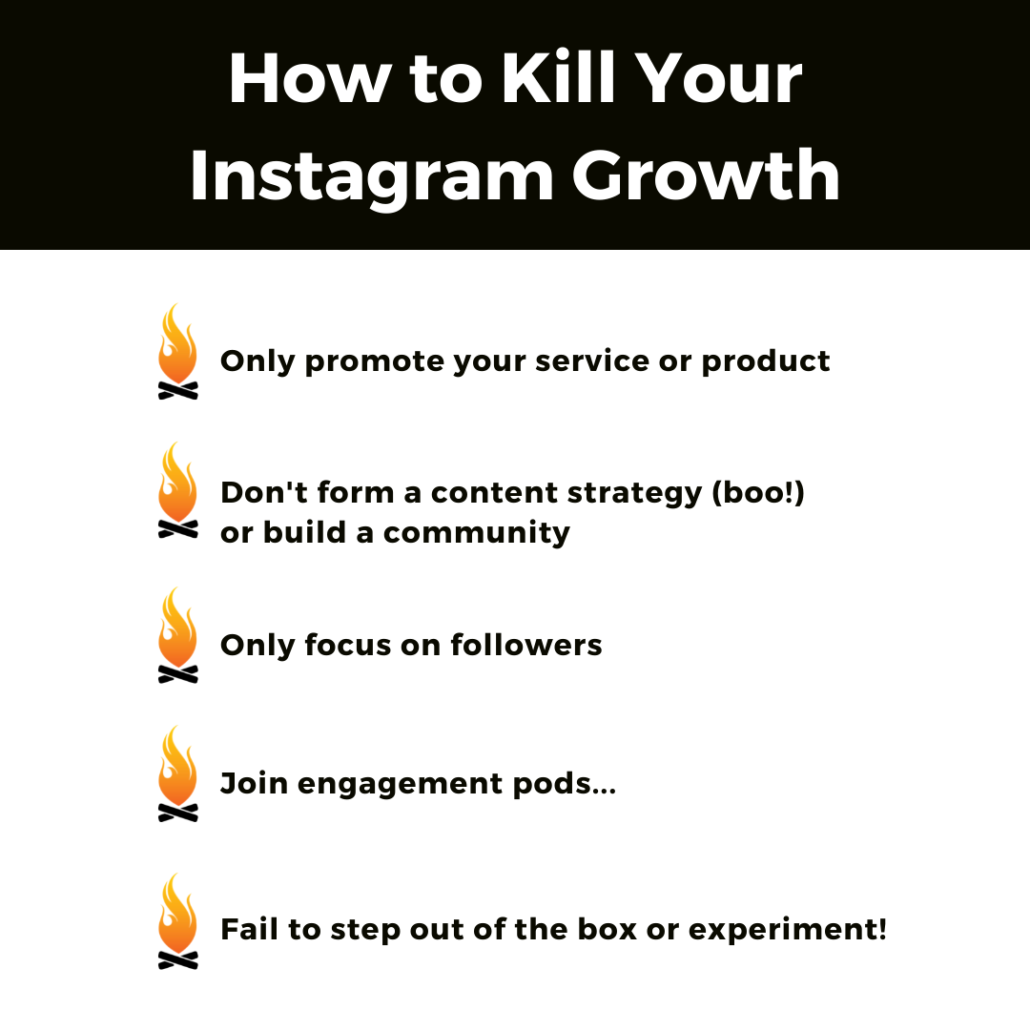© Digital Storyteller 2020
Get The Secret Sauce
Delivered right to your inbox (napkins optional)
© Digital Storyteller 2020
Oh my, ads! Did you know that as early as 2014, people were seeing approximately 5,000 advertisements every day!? With all this noise, how can your business, products, and services stand out from the crowd? Today, it’s not enough to grab your prospects’ attention with the occasional blog post or Instagram story.
To succeed as a business today, you need to consistently engage your clients and prospects by creating content. Good thing we have the secret sauce at Digital Storyteller! Let’s chat about how you can implement organic content creation to grab your clients’ attention.
There are two types of marketing available to businesses today: organic marketing and paid marketing. Both forms of content creation and marketing are ways to get people interested in your business, the services you provide, or the products you sell. So what’s the difference?
According to Brafton, an organic marketing strategy, also known as content marketing or inbound marketing, “generates traffic to your business naturally over time, rather than using paid advertising or sponsored posts.” Let’s take a little quiz to see if you get the idea.
That banner ad for Chick-fil-a? Paid marketing. A killer blog post you wrote and shared to your LinkedIn profile? Organic content creation. That GEICO YouTube ad that seems to interrupt every video you watch? Or even worse, TurboTax? Paid marketing. That monthly email newsletter you blast? Organic content creation. Right on—it seems like you’re getting the hang of it!
As a brand, the reason why organic social media should be at the base of your marketing strategy is “because it’s the best way to nurture a connection with your customers at scale.” Bottom line? You need great content to catch the eyes of your target audience.
We’re not here to mislead you. Just because your company is only focused on organic content creation, as opposed to paid, doesn’t mean that organic marketing is completely free. Organic marketing takes time and effort.
Think: how long did it take you to craft that marketing newsletter? How much do you pay annually for the related CRM software you used to send it out? For example, at Digital Storyteller, we pay a pretty penny to use HubSpot as our trusted CRM!
Content marketing is a long-term marketing strategy, averaging from at least six months to a year to see results. Your business’s personal results timeline, however, may depend on multiple of the following factors:
If you’re curious about whether or not content marketing is the right fit for your business and what the process looks like, check out this article we wrote on content marketing and how long the process takes!
With this new insight, organic simply means you’re not paying to boost your content for people to see and engage with it. Not that it is completely free. However, it is much more cost-effective than paid advertising.
Our philosophy here at Digital Storyteller is “save money on ads so you can spend it on wine.” We think you should live by this motto too.
“No amount of paid media is going to turn bad creative into good content.” These are the recent and brilliant words of Gary Vaynerchuk, CEO of VaynerMedia.
Consider your content creation strategy now, if you have one. Are you providing information and answers to questions that your target demographic is asking? Or, are you pumping out poorly written blog posts, posting on occasion to Instagram, and so on?
The simple adage returns: Quality over quantity. The failure to recognize and implement the difference is “the difference between catching the attention of a new customer and going completely unnoticed,” according to SocialMediaToday.
By carefully crafting organic content and implementing an organic content marketing strategy, you bring prospects to your business naturally over time. Organic marketing is focused on providing value to clients, then supporting it with a continued presence (like an awesome and active Instagram account on social media!)
Although organic marketing takes longer than paid advertising, once you achieve the high level of performance that you desire, you stay there. No, seriously… For life! That’s the amazing thing about organic marketing. As Brafton put it, “effective organic marketing creates permanent traffic sources to your website.” What more could you want?
Let’s dig into some research about paid marketing and its costs. Is paid marketing worth it? The answer: sometimes. We think it can work nicely if you’re supplementing your organic marketing efforts with the occasional boosted post.
But aren’t paid ads always at the top of Google? Well, yes.
But research shows that between 70% and 80% of clients ignore paid ads, focusing solely on organic results they receive in searches. Why is this? People simply have more trust in organic results than paid.
Think about the last thing you google searched. If it was, “best chardonnay” like us, did you scroll past the top ads? Yeah, we did too.
In fact, the top organic search results that appear on Google have an average click-through rate (CTR) of 31.7% whereas paid ads have a mere CTR of 1.91%. All we’re saying is given the statistics, we know which marketing approach we would choose.
People tend to think of gaining clients as a very transactional relationship. But this, however, is where businesses go wrong. When it comes to marketing, your goal is to build trust and connection while establishing a loyal client base.
Think about a brand you really admire. Consider for a minute why you admire them.
Do they provide you with valuable information? Does their story for why they founded the company tug at your heartstrings? Are they dedicated to a greater social or political cause?
Chances are, your favorite companies provide you with content that either informs, describes, or entertains—if done well, without you even noticing.

So, organic content creation sounds like the road to success… But how do you do it? Here we’ll provide elements you can (and should!) take advantage of right now in crafting your organic marketing strategy.
If you’re not already aware of what video marketing can do for your business, then you’re already behind the curve. Utilizing video is a great medium to implement in your organic content creation for many reasons:
It would be a disservice to not mention the importance of utilizing TikTok and/or Instagram reels in your organic content marketing strategy. Right now, TikTok and Instagram are going head to head in the video space—favoring those who post video content.
In fact, Adam Mosseri, head of Instagram and former Executive at Facebook announced that despite Instagram’s 11 year-long history, it is “no more a photo-sharing app.” While you can still post photos, of course, Mosseri’s comment shows that Instagram’s algorithm will favor those who prioritize video moving forward.
“Take it from me!” Testimonials provide prospects with a stamp of approval (or lack of one!) Just think, how many times have you gone onto Amazon, impressed with a product until you go and read the various two and three-star reviews?
Humans are heavily swayed by the opinions of others, and when it comes to business, reputation is everything.
Testimonials and reviews allow you to build trust and credibility, more so than you could do yourself. In fact, BigCommerce tells us that 72% of consumers say positive reviews and testimonials make them trust a business more. As a business owner, you need to leverage this component to your advantage.
In a world that wants what they want when they want it, organic content creation and marketing can be a long process. But the payoff is worth it! Don’t believe us? Get in touch today to see how we’ve moved the needle for our clients.
© Digital Storyteller 2020
Delivered right to your inbox (napkins optional)
© Digital Storyteller 2020

 How to Effectively Combine SEO and Content Marketing
Scroll to top
How to Effectively Combine SEO and Content Marketing
Scroll to top
This site uses cookies. By continuing to browse the site, you are agreeing to our use of cookies.
Accept settingsWe may request cookies to be set on your device. We use cookies to let us know when you visit our websites, how you interact with us, to enrich your user experience, and to customize your relationship with our website.
Click on the different category headings to find out more. You can also change some of your preferences. Note that blocking some types of cookies may impact your experience on our websites and the services we are able to offer.
These cookies are strictly necessary to provide you with services available through our website and to use some of its features.
Because these cookies are strictly necessary to deliver the website, refusing them will have impact how our site functions. You always can block or delete cookies by changing your browser settings and force blocking all cookies on this website. But this will always prompt you to accept/refuse cookies when revisiting our site.
We fully respect if you want to refuse cookies but to avoid asking you again and again kindly allow us to store a cookie for that. You are free to opt out any time or opt in for other cookies to get a better experience. If you refuse cookies we will remove all set cookies in our domain.
We provide you with a list of stored cookies on your computer in our domain so you can check what we stored. Due to security reasons we are not able to show or modify cookies from other domains. You can check these in your browser security settings.
These cookies collect information that is used either in aggregate form to help us understand how our website is being used or how effective our marketing campaigns are, or to help us customize our website and application for you in order to enhance your experience.
If you do not want that we track your visit to our site you can disable tracking in your browser here:
We also use different external services like Google Webfonts, Google Maps, and external Video providers. Since these providers may collect personal data like your IP address we allow you to block them here. Please be aware that this might heavily reduce the functionality and appearance of our site. Changes will take effect once you reload the page.
Google Webfont Settings:
Google Map Settings:
Google reCaptcha Settings:
Vimeo and Youtube video embeds:
The following cookies are also needed - You can choose if you want to allow them:
You can read about our cookies and privacy settings in detail on our Privacy Policy Page.
Privacy Policy